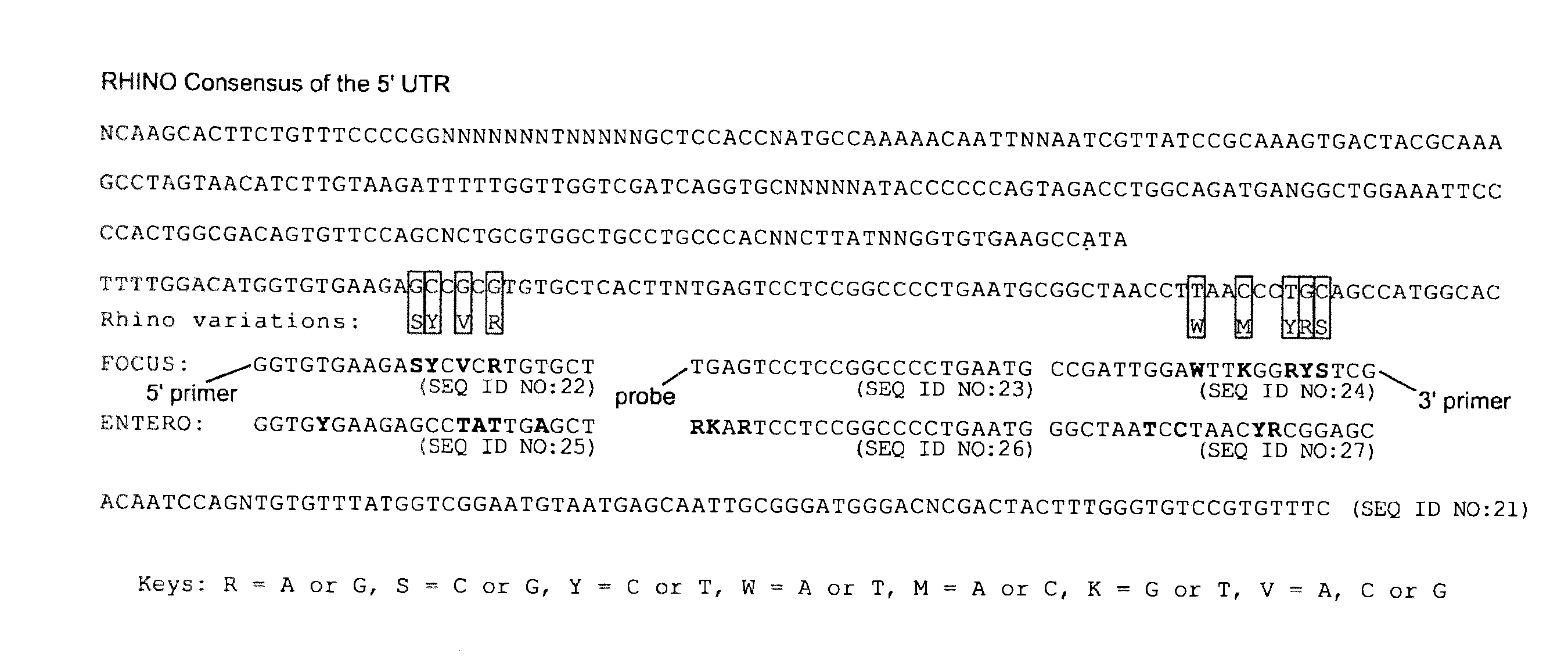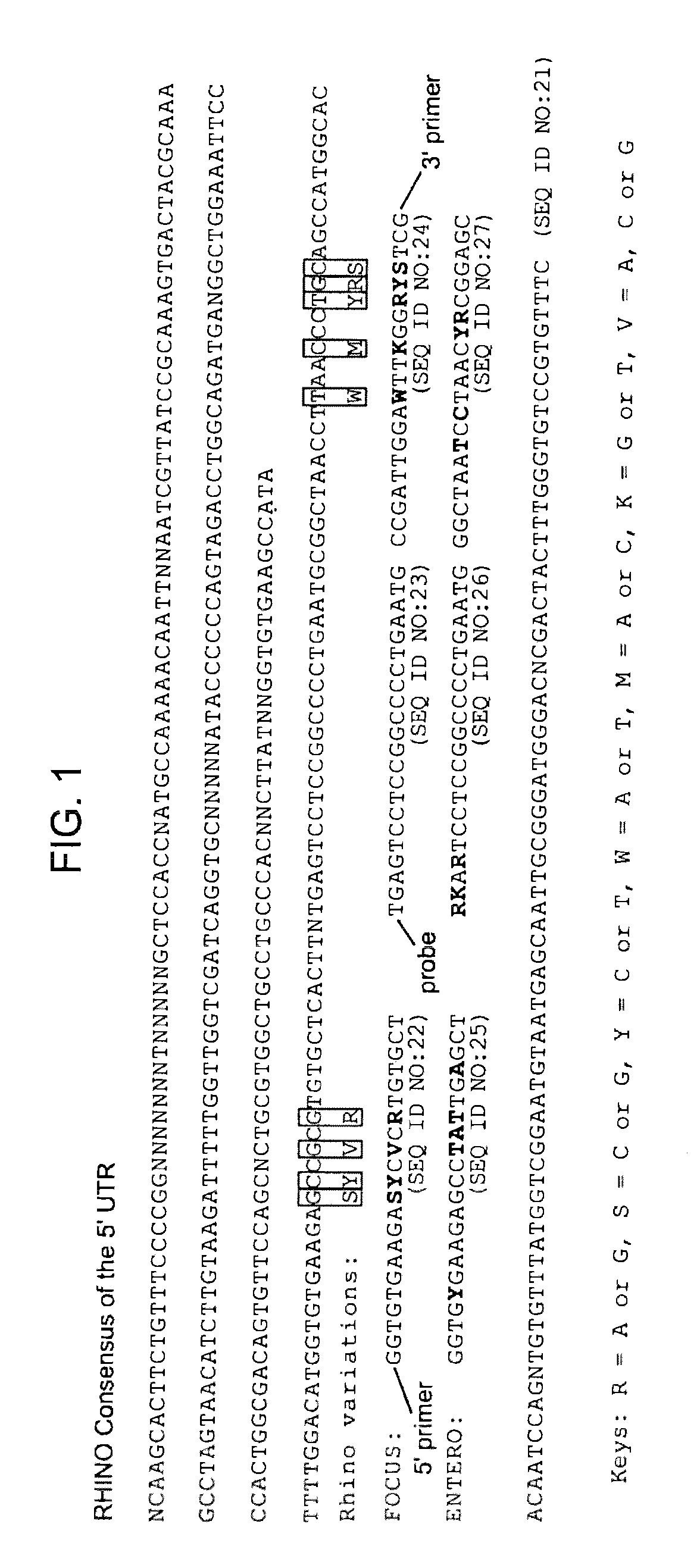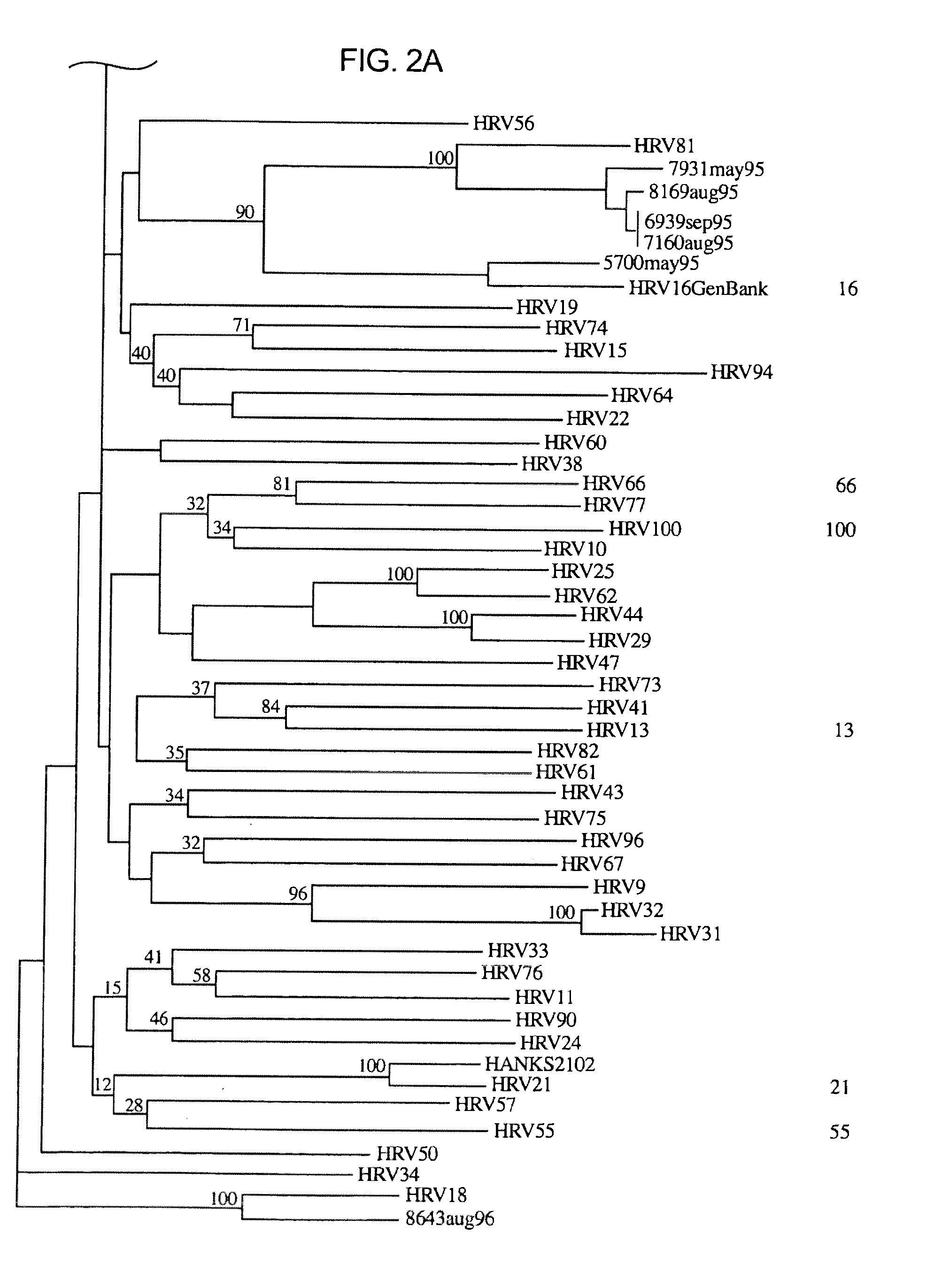Methods and compositions for detecting rhinoviruses
a technology of rhinovirus and composition, applied in the field of methods and compositions for detecting rhinovirus, can solve the problems of time-consuming and expensive approaches, and achieve the effects of reducing the incidence of false positives, major economic impact, and reducing false negatives
- Summary
- Abstract
- Description
- Claims
- Application Information
AI Technical Summary
Benefits of technology
Problems solved by technology
Method used
Image
Examples
examples
[0150] The following examples are put forth so as to provide those of ordinary skill in the art with a complete disclosure and description of how to make and use the present invention, and are not intended to limit the scope of what the inventors regard as their invention nor are they intended to represent that the experiments below are all or the only experiments performed. Efforts have been made to ensure accuracy with respect to numbers used (e.g. amounts, temperature, etc.) but some experimental errors and deviations should be accounted for. Unless indicated otherwise, parts are parts by weight, molecular weight is weight average molecular weight, temperature is in degrees Centigrade, and pressure is at or near atmospheric.
Methods and Materials
[0151] The following methods and materials were used in the Example(s) below.
[0152] Specimen types and handling. Samples for use in detection of HRV according to the invention can be any suitable biological sample, usually samples take...
example
[0176] This example describes the validation of the real-time RT-PCR assay for the detection of HRVs RNA from nasopharyngeal aspirates (NPA), bronchial washing / bronchoalveolar lavage (BAL) and swab specimens. The HRV virus Real-Time RT-PCR assay methodology used was as described above.
[0177] A target sequence was identified by aligning the 5′ untranslated region (UTR) of 33 different HRV isolates, as well as from isolates of non-HRV picronaviruses including enterovirus, poliovirus, and coxsackie virus (see FIGS. 3A-3D). A conserved 5′ UTR region of the HRV genome was identified, and a target sequence identified, as shown in FIG. 1. Primers and probes were designed so that the assay detected majority of the HRV serotypes, while at the same time avoiding detection of other picronaviruses, including the closely related EVs. Exemplary of such primers and probes are those described in the materials and methods section above, and which are used in the assays to provide the results below....
PUM
| Property | Measurement | Unit |
|---|---|---|
| temperature | aaaaa | aaaaa |
| temperature | aaaaa | aaaaa |
| pH | aaaaa | aaaaa |
Abstract
Description
Claims
Application Information
 Login to View More
Login to View More - R&D
- Intellectual Property
- Life Sciences
- Materials
- Tech Scout
- Unparalleled Data Quality
- Higher Quality Content
- 60% Fewer Hallucinations
Browse by: Latest US Patents, China's latest patents, Technical Efficacy Thesaurus, Application Domain, Technology Topic, Popular Technical Reports.
© 2025 PatSnap. All rights reserved.Legal|Privacy policy|Modern Slavery Act Transparency Statement|Sitemap|About US| Contact US: help@patsnap.com



